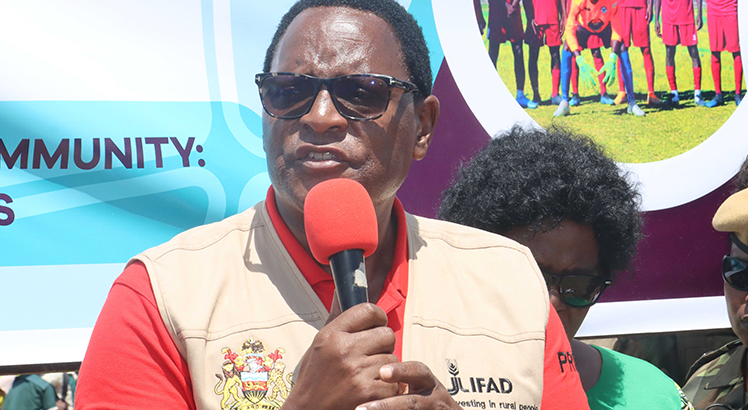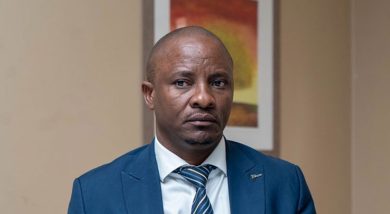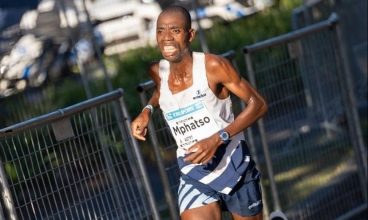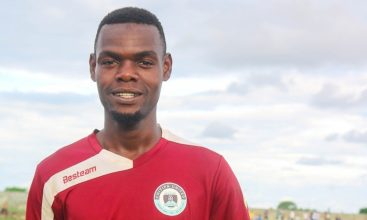Clubs reaping fruits from youth investment
Nyasa Big Bullets blossoming striker Hassan Kajoke was promoted from their reserve side at the start of this season, but within a few months, he is already in serious contention for the TNM Super League Golden Boot Award.
That is not all. The 20-year-old prolific forward has also established himself as one of the key strikers for the national team where he has so far scored two goals in less than six appearances.

And with 14 goals to his name, he is currently the joint second leading scorer in the top-flight league alongside Be Forward Wanderers Nigerian forward Babatunde Adepoju and just a goal shy of leading scorer Khuda Muyaba of Silver Strikers.
But he is not the only product from the People’s Team’s reserves as midfielder Chimwemwe Idana and defenders Charles Petro and Nixon Nyasulu have also made a mark.
The quartet is also in senior national team and are slowly but surely becoming the Flames’ backbone.
Bullets Reserve coach Enos Chatama believes that the outstanding performance of the promoted players is enough proof that “elite clubs can nurture own talent through own reserve or youth teams and still build strong squads rather than buying recycled players from other teams”.
At Wanderers, Felix Zulu and Francisco Madinga are also doing well and are considered future national team stars with frequent call-ups.
Silver also promoted the likes of Hadji Wali, Innocent Nhlema and Prince Phiri from their reserve team this season and their performance has so far been equally impressive.
“It is more rewarding to develop own talents through reserve or junior sides because apart from cutting costs by buying new players, the youngsters grow with the club’s culture and philosophy and they are dedicated,” Chatama said.
Bullets chief administration officer Albert Chigoga could not agree more.
“The emergence of our youthful players coming through the pecking order entails that football development is a catalyst for multifaceted benefits to a club,” he said. “Signing players from other clubs is a short-term solution whereas promoting players from our reserve side is a long-term solution,” he said.
Chigoga said much as Bullets may not take a radical approach to stop signing players from other teams, deriving talent from their own youth and reserve systems is now their main focus.
Wanderers’ chairperson Gift Mkandawire said: “We are impressed with the performance of players that have risen through the ranks and we are determined to make the exercise a habit from now on.”
The Nomads promoted four players from their reserve side, but two of them—Wisdom Mpinganjira and Chikondi Kamanga—ended up being loaned out to lower league and Super League sides Hangover FC and Ntopwa FC, respectively. Left back Precious Sambani was also promoted from the Nomads reserve side to the senior team while on loan from Chinangwa Madrid before he moved to Bullets.
Silver acting general secretary Innocent Kadamm’anja said they appreciate the benefits of nurturing own talent.
“As such, we will discuss with the club’s board to make it a deliberate policy that our main team should be built around players from our reserve and youth sides because that is cost-effective and the players are able to grow with our philosophy,” he said.
As part of the club licensing system (CLS), three years ago Football Association of Malawi (FAM) directed that all Super League teams should have reserve and youth sides.
FAM licensing and compliance manager Casper Jangale said they are happy that the project is bearing fruits.
“The idea of coming up with the programme was to encourage teams to have the culture of nurturing and developing their own talent other than spending money to buy recycled players from other teams.
“The exercise is not only cheap, but it also helpes the up-and-coming players to understand the culture and philosophy of the team,” he said.
Although it has been a long journey for Super league clubs to appreciate their reserve or youth players, recent developments have proved outstanding players in the elite league are the ones that underwent proper youth development process.
For instance, the likes of Bullets’ Mike Mkwate and Patrick Phiri, Silver’s Brightone Munthali, Trevor Kalema, Mark Fodya, Ernest Tambe and Levison Maganizo and Wanderers’ Chembezi Dennis continue to shine a few years after graduating from the now-defunct Surestream Academy, whose former mentor Peter Mponda believes are fruits of proper investment in player development.
The Bullets assistant coach and former Flames captain said: “Such structures were embraced during our time before clubs started trusting in recycled players. I am one of the good examples of players that went through a proper development system and as a result, I managed to play for the national team and foreign clubs for a long time.”
Almost all the big-name Malawi local players such as Kinnah Phiri, Ernest Mtawali, Jack Chamangwana, Young Chimodzi, Lawrence Waya, Frank Sinalo, John Maduka Clifton Msiya, Holman and and Kennedy Malunga, went through the youth development system.





